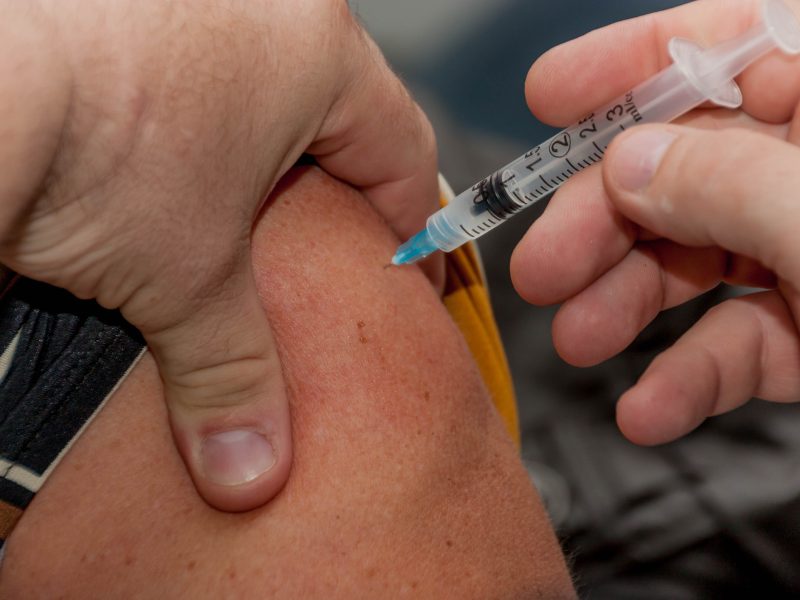Hypothyroidism is a medical condition that affects millions of people worldwide. It occurs when the thyroid gland, a small butterfly-shaped gland located in the neck, doesn’t produce enough thyroid hormone. The thyroid gland is responsible for producing hormones that regulate the body’s metabolism, heart rate, body temperature, and other essential functions. When the thyroid gland is not functioning correctly, it can lead to a range of symptoms and health problems. In this blog post, we will explore what the condition is, its causes, symptoms, diagnosis, treatment, and potential complications. By understanding this condition, you can be better equipped to recognize its symptoms and seek appropriate medical attention to manage it effectively.
Causes of Hypothyroidism
Hypothyroidism is a condition that results from an underactive thyroid gland. There are various reasons why the thyroid gland may not function correctly, and the causes of the condition can differ from person to person.
Common Causes
- Autoimmune thyroiditis (Hashimoto’s thyroiditis): This is the most common cause of hypothyroidism. Hashimoto’s thyroiditis is an autoimmune disorder in which the body’s immune system attacks the thyroid gland, damaging it and reducing its ability to produce hormones. This condition is more common in women and tends to run in families.
- Iodine deficiency: The thyroid gland requires iodine to produce thyroid hormones. If there isn’t enough iodine in the diet, the thyroid gland may not be able to produce enough hormones, leading to hypothyroidism. This is more common in areas where the soil is deficient in iodine, such as certain parts of the world.
- Radiation treatment or surgery: If the thyroid gland is exposed to radiation or is removed surgically, it may result in hypothyroidism. This is because radiation or surgery can damage or remove the thyroid gland, reducing its ability to produce hormones.
- Certain medications: Some medications can interfere with the production of thyroid hormones, leading to hypothyroidism. These medications include lithium, amiodarone, and interferon alpha.
- Pituitary gland dysfunction: The pituitary gland produces a hormone called thyroid-stimulating hormone (TSH), which signals the thyroid gland to produce thyroid hormones. If the pituitary gland is not functioning correctly, it may not produce enough TSH, leading to hypothyroidism.
Summary
Hypothyroidism can result from a variety of causes. If you suspect that you have it, it’s essential to consult your doctor to determine the underlying cause and receive appropriate treatment.
Symptoms of Hypothyroidism
Hypothyroidism is a condition that can lead to a range of symptoms. These symptoms can vary from person to person, and some people may not experience any symptoms at all. Here are some of the most common symptoms of the condition:
A. Fatigue: One of the most common symptoms is fatigue. People who suffer from it may feel tired all the time, even after getting enough rest.
B. Weight gain: Hypothyroidism can cause weight gain, even when people are eating a healthy diet and getting enough exercise. This is because it slows down the body’s metabolism, making it harder to burn calories.
C. Cold intolerance: People with hypothyroidism may feel cold all the time, even when it’s not particularly cold outside. This is because it can slow down the body’s metabolism, making it harder to maintain body temperature.
D. Constipation: Hypothyroidism can slow down the digestive system, leading to constipation.
E. Hair loss: Hair loss is another common symptom. People with it may experience hair thinning or hair loss on the scalp and other parts of the body.
F. Dry skin: Hypothyroidism can cause dry skin, which may be itchy and flaky.
G. Depression and anxiety: Hypothyroidism can affect the levels of hormones in the brain that regulate mood. As a result, people with the condition may experience symptoms of depression and anxiety.
H. Memory problems: Hypothyroidism can affect cognitive function, leading to memory problems and difficulty concentrating.
Summary
Hypothyroidism can cause a range of symptoms that can impact a person’s quality of life. If you are experiencing any of these symptoms, it’s essential to consult your GP to determine the underlying cause and receive appropriate treatment.
Diagnosis of Hypothyroidism
Diagnosing hypothyroidism typically involves a combination of medical history, physical examination, and laboratory tests.
Common Diagnostic Tests
- Blood tests: Blood tests are the most common way to diagnose hypothyroidism. The most common blood tests used to diagnose it include measuring levels of thyroid-stimulating hormone (TSH), thyroxine (T4), triiodothyronine (T3), and thyroid antibodies. Elevated TSH levels and low T4 levels are indicative of the condition. If the thyroid antibodies are present, it may indicate that hypothyroidism is due to an autoimmune disorder such as Hashimoto’s thyroiditis.
- Physical examination: A physical examination can also provide clues to diagnose hypothyroidism. Doctors may look for signs such as a slowed heart rate, dry skin, swelling in the legs, and slowed reflexes.
- Imaging tests: Imaging tests, such as an ultrasound, MRI, or CT scan, may also be used to diagnose the condition. These tests can help to identify any structural abnormalities in the thyroid gland or surrounding tissues.
Summary
Diagnosing hypothyroidism requires a thorough evaluation by a doctor, including medical history, physical examination, and laboratory tests. If you are experiencing symptoms of the condition, it’s essential to consult your GP to determine the underlying cause and receive appropriate treatment.
Treatment of Hypothyroidism
The primary treatment for hypothyroidism is hormone replacement therapy, which involves taking synthetic thyroid hormone to replace the hormone that the body is not producing enough of.
Common Treatments
- Hormone replacement therapy: The most common hormone replacement therapy for hypothyroidism is levothyroxine, which is a synthetic form of the hormone thyroxine. This medication is usually taken orally, once daily, and helps to restore normal thyroid hormone levels in the body.
- Medication: In some cases, other medications may be used in combination with hormone replacement therapy to manage specific symptoms of hypothyroidism. For example, some people may need medication to manage high cholesterol levels or blood pressure.
- Lifestyle changes: In addition to medication, lifestyle changes can also help to manage hypothyroidism. Eating a healthy diet that is rich in nutrients such as iodine, zinc, and selenium can help support thyroid function. Exercise can also help to boost energy levels and improve overall health. Stress reduction techniques such as meditation or yoga may also be helpful in managing symptoms of hypothyroidism.
Summary
The treatment for hypothyroidism involves hormone replacement therapy, medication, and lifestyle changes. If you are diagnosed with the condition, your GP will work with you to determine the best course of treatment based on your individual needs and medical history. It’s important to work closely with your doctor to manage your the condition and maintain good overall health.
Complications of Hypothyroidism
Hypothyroidism is a condition that affects the thyroid gland, which is responsible for producing hormones that regulate many bodily functions. If left untreated, hypothyroidism can lead to a number of complications.
Common Complications
- Cardiovascular problems: Hypothyroidism can increase the risk of cardiovascular disease, including high blood pressure, high cholesterol levels, and heart disease. These complications can be managed with medication and lifestyle changes, but it’s important to catch them early to prevent further damage to the heart and blood vessels.
- Nervous system disorders: In severe cases, hypothyroidism can lead to nerve damage and a condition called myxedema coma. Symptoms of myxedema coma include confusion, seizures, and even coma. This is a medical emergency that requires immediate treatment.
- Infertility: Hypothyroidism can also affect fertility, especially in women. When thyroid hormone levels are low, it can disrupt the menstrual cycle and make it more difficult to conceive.
- Birth defects: Pregnant women with the condition are at a higher risk of having babies with birth defects. This is why it’s important for women with hypothyroidism to work closely with their doctor to manage their condition during pregnancy.
Summary
Hypothyroidism can lead to a range of complications if left untreated. These complications can be managed with medication, lifestyle changes, and close monitoring by a GP. If you are experiencing symptoms of the condition, it’s essential to seek medical attention to prevent further health problems.
Wrapping Things Up
In conclusion, hypothyroidism is a common condition that occurs when the thyroid gland doesn’t produce enough hormones to regulate bodily functions. This can lead to a range of symptoms, including fatigue, weight gain, cold intolerance, constipation, hair loss, and depression.
Hypothyroidism can also lead to a number of complications if left untreated, including cardiovascular problems, nervous system disorders, infertility, and birth defects. It’s essential to seek medical attention if you are experiencing symptoms of the condition to prevent further health problems.
Early diagnosis and treatment are key to managing hypothyroidism effectively. If you are diagnosed with the condition, your doctor will work with you to develop a treatment plan that is tailored to your individual needs. This may involve hormone replacement therapy, medication, and lifestyle changes.
With proper treatment and management, people with the condition can live healthy and active lives. So if you are experiencing symptoms of hypothyroidism, don’t hesitate to speak to your doctor to get the help you need.
Read Next
- The Importance of Testosterone and Why We (All) Need It
- Boosting Your Immune System Means Living Your Best Life
- ACL Injuries and Everything You Need to Know
- Manifestation – Universal Energy, Visualisation, and Gratitude
- Why Hormones Play a Key Role in Acne Development
Disclaimer: The information provided on Healthy Lifestyles for All is intended for general educational purposes only and should not be considered as medical advice. Please consult with your GP or other health professional before making any significant changes to your diet, exercise routine, or any other aspect of your lifestyle. We are not responsible for any adverse effects or consequences resulting from the use of the information provided on our blog.
Comments: I hope you enjoyed reading this post as much as I enjoyed writing it. If you liked it, please leave a comment. If you didn’t like it, disagree with something I have written (I’m okay with that), or think I got something wrong (that’s okay too), please leave a comment as well. We only truly learn from our mistakes, so I am happy to have mine pointed out.
Affiliate Links: Please also note that I may make a small amount of money if you buy one of the products I recommend in any of my blog posts. Rest assured that I have done my own due diligence, and only recommend products that have been tried and tested, and have extremely good feedback. Additionally, many of the products I recommend have 30 or 60-day money-back guarantees, so you can buy in the confidence that if a particular product is not right for you, you can get a refund.

